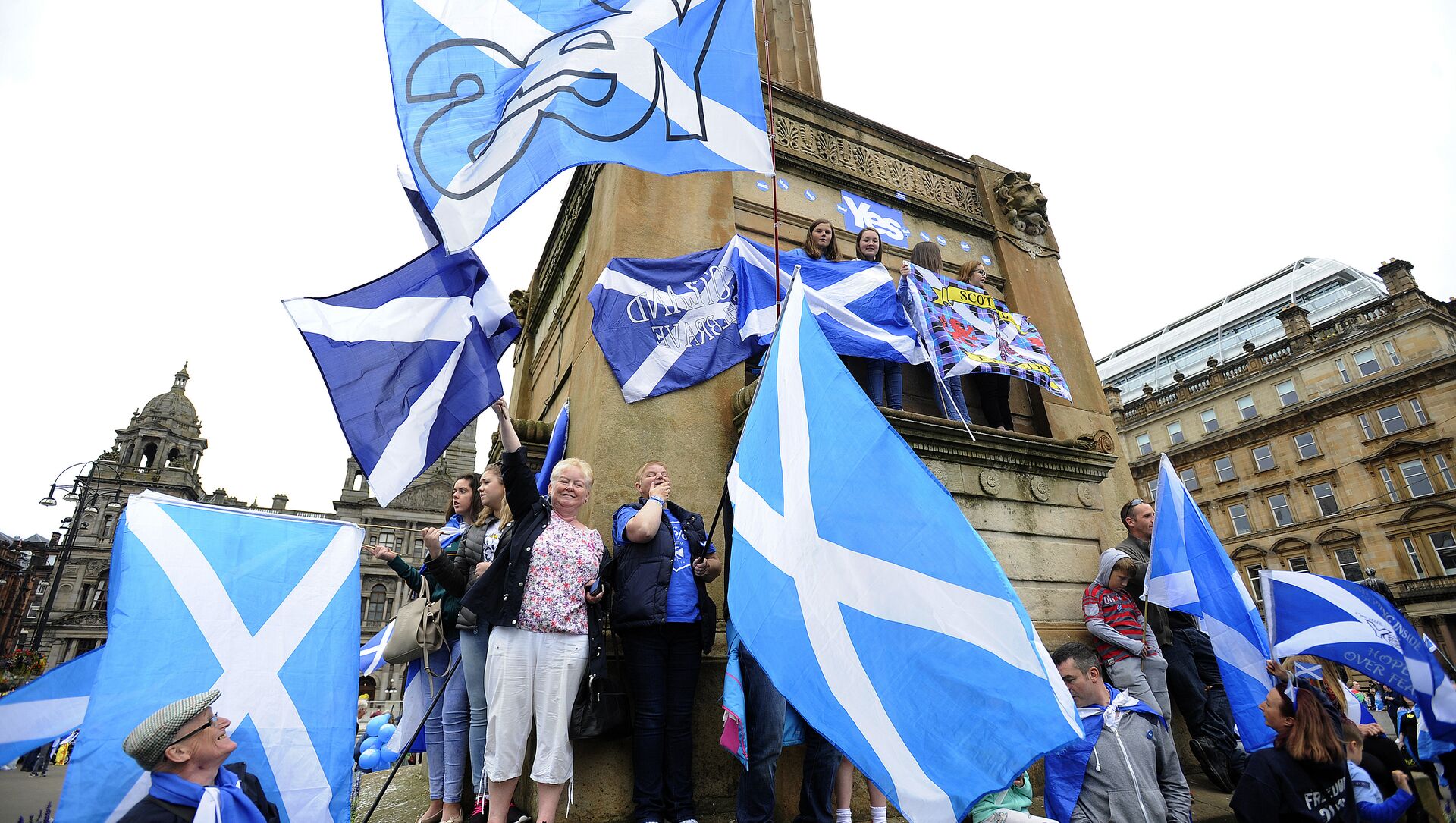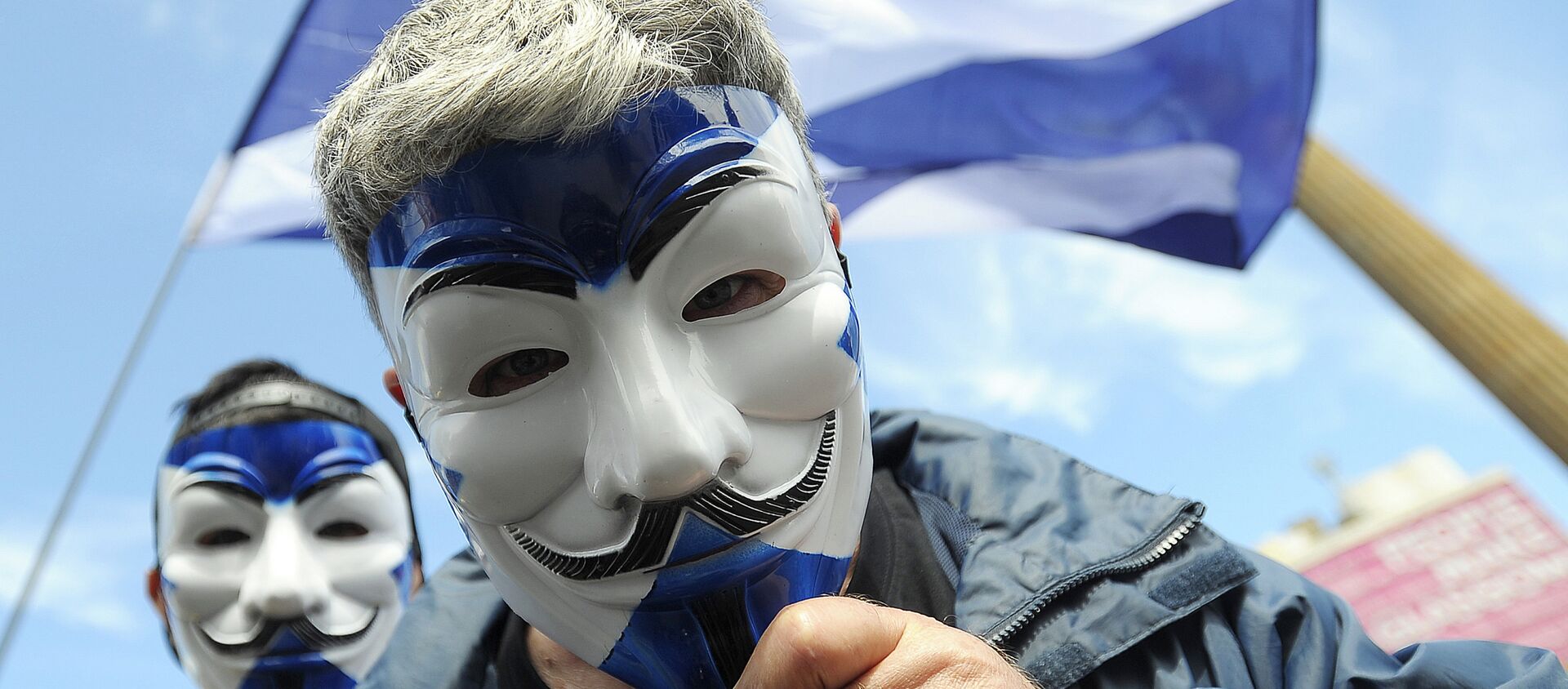British Prime Minister Boris Johnson has stated that there will be no second Scottish referendum in the near future and that the emphasis should now be made on efforts to tackle the COVID-19 pandemic.
"I think the focus of politicians throughout the UK should be on fighting the pandemic, working together to defeat COVID and building back better and quite frankly I do not see the virtue, value, or utility of having a referendum at any time in the foreseeable future, particularly when we have to defeat COVID and take our country forward", he stressed.
The statement came as London confirmed that the so-called "union unit" set up inside the government has been scrapped and will be replaced by a new Cabinet committee led by Johnson.
The Daily Mail cited an unnamed government source as saying that the creation of the new committee is not a sign of "confusion and panic around the Union".
"[…] I think it demonstrates our commitment to the Union and the focus the PM has on ensuring that we deliver for all countries of the United Kingdom", the source underlined.
This followed Scottish Cabinet Secretary for the Constitution, Europe, and External Affairs Michael Russell saying in late January that the country's second vote for independence could be held six months after Holyrood passed a referendum bill, which is expected in June.
He indicated that if the Scottish National Party (SNP) stays in power following elections in May, it will unilaterally legislate for a new ballot if Prime Minister Johnson continues to refuse one.
Time to Scrap 'Endless' Talk on Scottish Referendum, Johnson Says
Russell's remarks were preceded by Johnson reiterating his negative attitude toward holding a second Scottish referendum during a visit there on 28 January.
"I don't think that the right thing to do is to talk endlessly about another referendum when I think what the people of the country and the people of Scotland want in particular is to fight this [COVID-19] pandemic", the prime minister said.
Johnson added that he does not see "the advantage of getting lost in pointless constitutional wrangling when after all we had a referendum not so very long ago".
Scotland's First Minister Nicola Sturgeon called out Johnson's trip, questioning whether his reasons for visiting the country are "really essential" and arguing it could be misinterpreted by the public.
She earlier told the BBC that the prime minister "fears the verdict and the will of the Scottish people" as he continues to refuse to allow another independence vote. According to Sturgeon, her government will hold an independence referendum if the SNP wins a majority in the May elections.
The first minister spoke after the SNP unveiled what it described as a "roadmap to a referendum" that laid out the party's 11-point plan on how they intend to pursue a second vote.
Scotland voted 55% to 45% against independence in a 2014 poll. However, in the subsequent 2016 Brexit vote, most Scots also backed remaining a part of the European Union, sparking demands for a new independence vote after the UK as a whole ultimately chose to leave the bloc.






